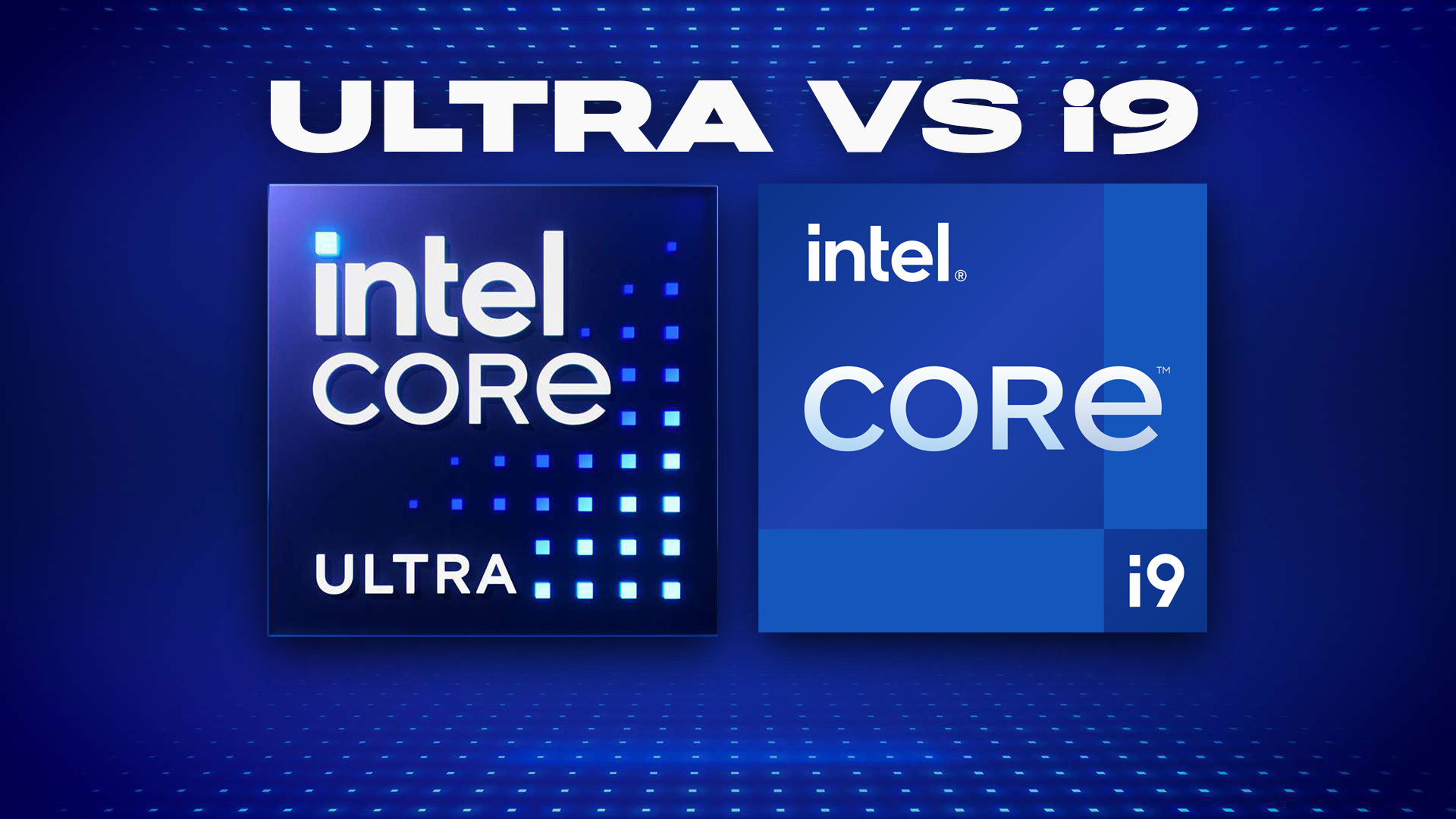This post was initially written for the release of the mobile only Meteor Lake Processors. It has since been updated to include the Arrow Lake Core Ultra Desktop processors as well.
Intel Core Ultra vs. Core i9 Processors
 With the recent release of Intel’s newest gen processors and new naming contention, Intel Core Ultra is making waves but also confusing consumers. But how does one compare Core Ultra vs. Core i9? Let’s break down the key differences between these two lines, helping you pick the perfect CPU for your needs.
With the recent release of Intel’s newest gen processors and new naming contention, Intel Core Ultra is making waves but also confusing consumers. But how does one compare Core Ultra vs. Core i9? Let’s break down the key differences between these two lines, helping you pick the perfect CPU for your needs.
Intel Core i9: Powerhouse Performance
The 14th Gen Intel Core processors, codenamed Raptor Lake-R, are the successors to the prior 12th and 13th Gen lines. Just like their architectural ancestors, 14th Gen was broken out into i3, i5, i7, and i9 from least to most performance. As we’ve discussed in previous posts, these processors are generally built for power users looking for high end performance. They feature a hybrid architecture, combining high-performance cores for demanding tasks like video editing and 3D rendering with efficient cores for everyday computing.
The mobile versions of these i9 and i7 processors run on that same architecture, but with reduced power delivery and increased efficiency in order to walk that tight rope between performance and battery life. The mobile models are usually marked with an H or HX, delineating them from their desktop versions (for example, the Core i9-14900HX in our Raptor S77).
Notable models: Core i9-14900k (desktop), Core i9-14900HX (mobile)
Intel Core Ultra: aka 15th Gen Intel Core
Enter Intel Core Ultra. Built on Intel’s newer Arrow Lake architecture, Core Ultra processors are the latest generation desktop and mobile processors, making them essentially 15th Gen Intel Core. Intel Core Ultra is a new naming scheme that completely tosses aside the i9/i7/15 nomenclature we’ve all become accustomed to as well as the model numbers that indicate the generation. But despite the confusing nomenclature, Intel Core Ultra is intended to be the successor to Intel Core i9. Here’s a grid comparing i5/i7/i9 with the latest Intel Core Ultra:
| 14th Gen | 15th Gen | ||
| Intel Core i5 14600k | 14 cores @ 5.3GHz | Intel Core Ultra 5 245K | 14 core @ 5.2GHz |
| Intel Core i7 14700k | 20 cores @ 5.6GHz | Intel Core Ultra 7 265K | 20 core @ 5.5GHz |
| Intel Core i9 14900k | 24 cores @ 6.0GHz | Intel Core Ultra 9 285K | 24 core @ 5.7GHz |
One thing you’ll notice here is that in terms of raw specs, the 15th Gen processors do not see a major jump in performance, inherent IPC improvements aside. This is because after years of increasing voltage limits to boost performance (sometimes to the detriment of longevity), Intel has focused primarily on efficiency with this new architecture. That means less power used and less heat generated overall for, at worst, similar performance.
Notable models: Core Ultra 285K, Core Ultra 5 245K, Core Ultra 7 155 HL
So, Which Processor is Right for You?
Here’s a quick guide to choosing Core Ultra vs. Core i9 for your next PC:
- Power User: If you’re a gamer, content creator, or professional who needs maximum processing power without regard for thermal performance or efficiency, the Core i9 may still be the choice. Its high core count, clock speeds, and potential for overclocking make it a performance beast. Check out our Raptor Z95i.
- Energy consumption minded pros: For professionals and gamers who value efficiency, the Core Ultra Processor is a compelling option. They deliver premier performance usually within 1-2% of Core i9, but at a fraction of the power consumption. Check out the Z95u to learn more.
Josh has been with Velocity Micro since 2007 in various Marketing, PR, and Sales related roles. As the Director of Sales & Marketing, he is responsible for all Direct and Retail sales as well as Marketing activities. He enjoys Seinfeld reruns, the Atlanta Braves, and Beatles songs written by John, Paul, or George. Sorry, Ringo.
